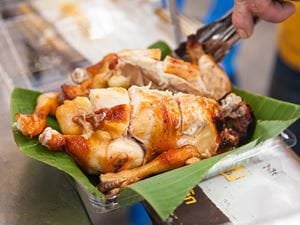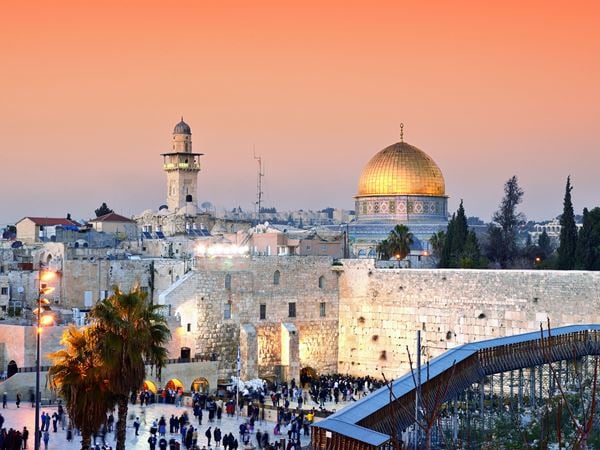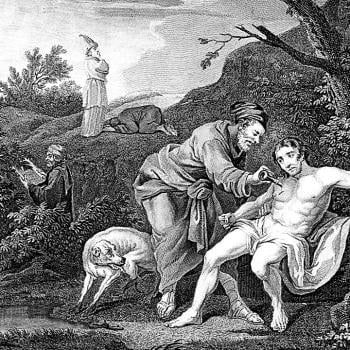
Reverence for Life in Hinduism
Like many Asian religious traditions, Hinduism emphasizes the importance of manifesting a strong reverence for life. This principle is known as ahimsa—meaning “without injury” (in Sanskrit). Buddhism, Jainism, Sikhism, and other traditions (including Christianity) have customarily taught that their practitioners should reverence all life—not just human life. Living harmoniously with all created forms of life is an ethic that is common in most religious traditions and is heavily emphasized among Hindus.
Diversity Within Hindu Beliefs and Practices
Of course, in understanding Hinduism, one must keep in mind that it is an incredibly diverse religion, with numerous beliefs, gods, practices, and approaches. Not all Hindus believe the same thing, nor practice their religion in the same way. Thus, one can never safely say “Hindus always believe this…” or “Hindus always do this…” So, we must speak in generalities about what Hinduism “officially” teaches, but dogmatism is never appropriate when discussing the Hindu religion.
Misconceptions About Hindu Vegetarianism
While vegetarianism has been fairly common among Hindus (since about the 6th century BCE), it is a frequently held misunderstanding that all Hindus are vegetarians. In their Concise Introduction to World Religions, Willard Oxtoby and Alan Segal noted: “Contrary to a common Western stereotype, most Hindus are not vegetarians. Nor does vegetarianism for Hindus mean abstaining from dairy products. Generally speaking, vegetarianism is a matter of community and caste. The strictest Hindu vegetarians are the Vaishnavas, devotees of Vishnu in northern India. In addition, most brahmins [i.e., those of the priestly caste] are vegetarian—except in Bengal and Kashmir.” So, vegetarianism simply isn’t a “commandment” in Hinduism, and a significant portion of Hindus do eat certain meats. For those Indians—whether Hindu, Buddhist, Jain, Sikh, or of some other religious tradition—who do abstain from meat, this is usually mostly for cultural reasons, and less for religious reasons.
Hindu Dietary Practices
Hinduism does not require a vegetarian diet, but many Hindus choose not to eat meat. Hindus who do choose to be strict vegetarians will not eat any kind of meat, including fish, or animal-based foods, such as eggs. Most Hindus, however, will consume milk-based products like butter, cheese, or yogurt.
Ahimsa and Nonviolence
The reason some Hindus do not eat meat is because a central teaching of Hinduism is ahimsa, or respect for all living things and the importance of not committing violence against others. This means having compassion towards animals and all living things in nature. Many sacred texts in the Hindu tradition emphasize the importance of nonviolence, and these texts are often interpreted by Hindus as supporting a vegetarian diet.
Spiritual Reasons for Vegetarianism
There are also many religious teachings in the long tradition of Hinduism that strongly advise against eating meat for spiritual reasons. Many Hindus believe that in the act of eating meat, people consume the emotional pain and fear of the animal who was slaughtered, and this energy can have negative spiritual consequences. This is why Hindu religious leaders, priests, yogis, and others striving to achieve a higher plane of personal spirituality tend to practice strict vegetarianism. In Hinduism, the types of food a person eats are considered to play an important role in the success of their spiritual pursuits. As a result, there exists a variety of diets specific to Hindus who are focusing on their spiritual development, such as the sattvic diet. These diets are all vegetarian.
Prohibition on Beef Consumption
While Hindus are generally allowed to eat a variety of meats, this remarkably ancient tradition does teach that its practitioners should not kill cows nor consume beef. The reasoning behind this is found in several popular Hindu beliefs, including the idea that the cow is sometimes associated with the “mother-goddess Aditi” and is evidence of the “divine bounty of the earth.” Thus, the cow is a symbol of God’s benevolence. Similarly, because Krishna (one of the most popular Hindu Gods, who is the 8th avatar of Vishnu) was a “cow herder,” some Hindus associate the cow with Him as well. Krishna is one of the most benevolent and loving manifestations of God (in Hindu belief). Cattle has kept India alive for centuries. They do work, provide dairy products, their dung is used to fuel fires, and (in some cases) their skin is used when a cow dies of natural causes. The cow has become “a comprehensive symbol of Indian Hindu nationalism.” It is reverenced, protected, and perceived as a symbol of the sacred. In twenty-four out of twenty-nine states in India, there are restrictions on killing cows or eating beef. In parts of India, it is illegal to kill or eat cattle. In other locations on the subcontinent (where there are high concentrations of non-Hindus), it is only legal to kill and consume beef at certain times of the year. (In the permissible locations, one must typically have a permit to slay and eat cattle, and one would be fined for doing so without authorization from local authorities.)
Other Dietary Restrictions
While beef is strictly prohibited throughout most of India, one will find fish and chicken among the meat products sold in restaurants and stores—and commonly consumed in various parts of the subcontinent. However, in addition to prohibitions on the consumption of beef, most Hindus will also not kill (or eat) peacocks because that specific bird is believed by some practitioners to represent achieving victory over poisonous tendencies—one of the major goals of life (in Hinduism). Peacocks also represent protection and Maa Saraswati, the goddess of wisdom, music, poetry, and speech. Thus, they are reverenced by some for what they symbolize.
Acceptable Meat Preparation
Some Hindus who do eat meat will only do so if the animal has been slaughtered by jhatka, a slaughtering technique in which the animal is killed with a single blow to the back of the neck. This method is considered in Hinduism to be the least painful for the animal and thus cause the least trauma and stress. Some Hindu religious texts advise that animals killed through jhatka are thus permissible for Hindus to eat, though most Hindus will still say that it is not the ideal food for a person trying to follow a specifically specialized spiritual path.
Cultural Influences on Diet
Today, whether or not a Hindu will eat meat is also partly a question of location and culture. Many Hindus who grow up in communities where it is very common for people to be vegetarian, such as the south of India, will not eat meat. For Hindus who do not eat meat, their meals will usually consist of grains, such as rice, and a variety of vegetables, stews, and spices. For Hindus who grow up in the U.S., Europe, or even northern India, where meat-eating is more common, the consumption of meat likewise is more common.
Zoolatry in Hinduism
Hinduism is probably the only major world religion today that is zoolatrous, in that the cows (and a number of other animals) are treated like gods. Of course, cattle are not worshiped in Hinduism in the same way Christians would worship their God. Nonetheless, the connection of cows with the divine, with Hinduism itself, and with Hindu nationalism, has made any killing or consumption of them extremely taboo. Nonetheless, that strongly held belief has not resulted in theological or governmental prohibitions against the consumption of animal flesh in general—and those who choose to avoid eating all meat are often either practicing Brahmin priests, strongly influenced by the doctrine of ahimsa, or are just culturally inclined because of the widespread discomfort one finds with eating beef in most of India.
5/22/2024 4:26:59 PM














